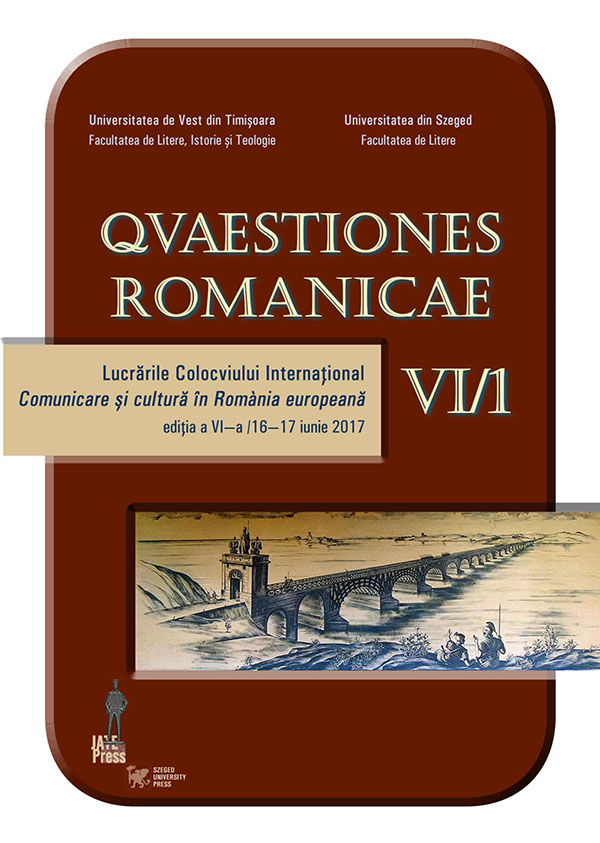Canonul traducerii – Plaut, Bacchides / Menandru, Dis exapaton
Abstract: (The Canon of Translation - Plaut’s Bacchides / Menander’s Dis exapaton) The issue of the influence of the New Greek comedy on Latin comics has been widely debated over time. The opinions oscillated between denying Plaut and Terentius’ comedies any originality and, on the contrary, considering the Greek models only as starting points from which the Latin comedians produced their comedies perfectly independent. The debate was possible and was fuelled by the fatality of the absence of a Greek “original” and its transposition / translation into Latin. However, a relatively recent breakthrough can provide a firsttime response to this problem. The last century a papyrus (P. Oxy, 64 4407) dating from the III-IV century AD, which contained fragments from the Menander’s comedy Δὶς ἐξαπατῶν “Twice Deceiving” or “The Double Deceiver”, was discovered and published. For the first time it was possible to confront the text of a Νew Greek comedy and its “re-elaboration” in Latin, more precisely in Plaut’s comedy Bacchides. We propose to confront verses 11-30 and 91-112 of Menander’s text with vv. 494-560 of the plautine comedy to appreciate in uiuo the way the Latin author reports to his model. We will try to provide a response to the thorny problem of the “originality” of the Latin authors towards their Greek models.
Keywords: Plautus, Bacchides, Menander, Dis exapaton, Greek-Latin Translation.
Rezumat: Problema influenței comediei noi grecești asupra comicilor latini a fost amplu dezbătută de-a lungul timpului. Părerile au oscilat între a nega comediilor lui Plaut și Terențiu orice originalitate și, dimpotrivă, a considera modelele grecești doar ca pe niște puncte de plecare de la care comicii latini șiau elaborat comediile perfect independent. Dezbaterea a fost posibilă și a fost alimentată de fatalitatea absenței unui „original” grec și a transpunerii / traducerii sale în latină. O descoperire relativ recentă poate oferi însă pentru prima dată un răspuns la această problemă. În secolul trecut a fost descoperit și publicat un papirus (P. Oxy. 64 4407) datând din sec. III-IV p. Chr. care conținea fragmente din piesa menandreică Δὶς ἐξαπατῶν „Cel ce înșală de două ori” sau „Dubla înșelăciune”. În premieră se putea confrunta textul unei comedii noi grecești și „reelaborarea” lui în latină, mai precis în comedia Bacchides a lui Plautus. Ne propunem să confruntăm versurile 11-30 și 91-112 din textul lui Menandru cu vv. 494-560 din comedia plautină pentru a aprecia in uiuo felul în care se raportează autorul latin la modelul său. Vom încerca astfel să oferim un răspuns spinoasei probleme a „originalității” autorilor latini față de modele lor grecești.
Cuvinte-cheie: Plaut, Bacchides, Menander, Dis exapaton, traducere greacă-latină.
